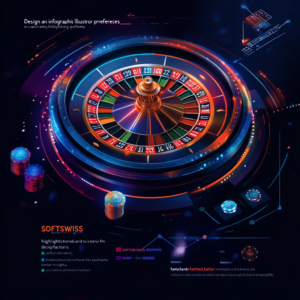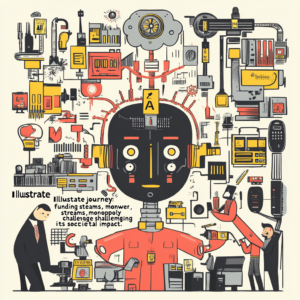Galileo Unleashing AI Evaluation: Here Comes a Revolution in Development
So, here we are. Somewhere on this bumpy ride called the AI journey, where every single twist and turn seems to push us deeper into a rabbit hole of complexity and innovation. Welcome to the grand unveiling of Galileo, a platform so bold, it dares to challenge not just the status quo but the very nature of how we evaluate our artificial friends—the AI agents. And boy, do we need it.
What’s the Deal with Evaluating AI?
AI agents, especially those decked out with something called large language models (LLMs), have been shaking up every nook and cranny of multiple industries. From automating mundane tasks to handling complex, multi-step workflows, they’ve become the darlings of tech. But guess what? With all that glitter and glam come some pretty prickly challenges. Traditional evaluators appraise these agents through a lens that’s out of focus—missing the mark on hefty issues like unpredictability, numerous ways to fail, and that ever-persistent question of cost management.
Here’s a head-scratcher: why do some AI applications seem to have a meltdown at the most inopportune moments? Because traditional tools just don’t cut it in an increasingly complex landscape. It’s like trying to navigate a sprawling labyrinth with nothing but a flashlight that flickers now and then. Not so great, is it?
Enter Galileo: Meet Agentic Evaluations
Galileo rolls onto the scene like a knight in shining armor, equipped with its newest brainchild—Agentic Evaluations. Imagine having a set of tools that doesn’t just offer surface-level feedback, but goes deep, deep down the rabbit hole where inefficiencies lurk. This platform serves a buffet of solutions, vital for developers who need to build AI agents that won’t just tap dance on the edge of failure.
What Makes Agentic Evaluations Tick?
First things first: Total Visibility. Imagine being able to see the entire workflow of your AI agent, like watching a movie where you know exactly how each scene connects. This feature allows developers to trace every little step, spotting mistakes, debugging chaotic pathways, and improving their session efficiency without breaking a sweat.
Then, you’ve got Agent-Specific Metrics. Galileo isn’t playing hide-and-seek with data here; it offers proprietary metrics, grounded in research, to dissect the performance of agents at every level. Want to know how well your agent selects its tools? Curious about the error rates in individual tasks? It’s all there, neatly packaged for you.
Next up is the LLM Planner. Think of it as a GPS for the instructions given to your AI, ensuring the commands are crystal clear for the best results. This little gadget is crucial because let’s be honest—no one likes giving bad directions, especially not to an AI.
Cost and latency are on the table too, thanks to Granular Cost and Latency Tracking. If you dream of keeping your projects on budget while firing on all cylinders, this feature is your best friend. Developers can keep an eagle eye on costs, delays, and errors across sessions and maneuvers.
Don’t worry about compatibility issues; Galileo sings sweetly with popular AI frameworks like LangGraph and CrewAI, making integration smoother than a live jazz performance.
Last but certainly not least, the platform showers developers with Proactive Insights. Picture having the foresight to detect problems before they spiral into disasters. This feature rolls out alerts and vibrant dashboards that keep watch on systemic hiccups, offering valuable insights for continuous improvement. You’ll know right away if there’s a failed tool call, or if that shining end result has strayed from the original intent.
The Ripple Effect: Real-World Wins
But what good is all this fancy innovation if it doesn’t translate to real-world success? Let’s talk about a financial technology powerhouse that discovered a pot of gold with Galileo. They slashed their typical mean time to detect (MTTD) and mean time to resolution (MTTR) for AI issues from days down to mere minutes. Imagine the champagne popping when they realized that with Galileo’s real-time monitoring, anomalies were spotted quicker than a hiccup.
In another corner, Magid—a media consulting firm—unleashed their AI-powered newsroom product into the stratosphere of reliability and accuracy. By harnessing Galileo, they could track everything with laser precision, making informed decisions that would send shivers down the spine of any competing media house. Those insights? They translated into data-driven gold that clients now swear by.
Show Me the Money: Funding and Growth
But here’s a plot twist. Galileo isn’t just a tech marvel; it has also stylishly stepped onto the funding runway. After exiting stealth mode, they bagged a whopping $5.1 million seed funding round led by The Factory. But that was just the beginning. An additional haul of $45 million followed, fueling the next chapter for Galileo as they ramp up their platform and set sights on ambitious expansions. Talk about hitting the jackpot!
The Bottom Line
Galileo’s Agentic Evaluations isn’t just another tool in the shed; it’s practically a game-changer in the realm of AI development. This brainy platform offers developers a lifeline to navigate the chaotic seas of evaluating and optimizing AI agents, setting them up to create robust, trustworthy AI solutions that leap way beyond standard fare.
So, if you’re keen to be part of the AI revolution, don’t just stand there—dive in, explore, and let the ingenuity of Galileo guide your way to a more reliable, efficient, and responsive AI future.
Want to stay up to date with the latest news on neural networks and automation? Subscribe to our Telegram channel: @ethicadvizor and keep your finger on the pulse of AI evolution and breaking innovations!

